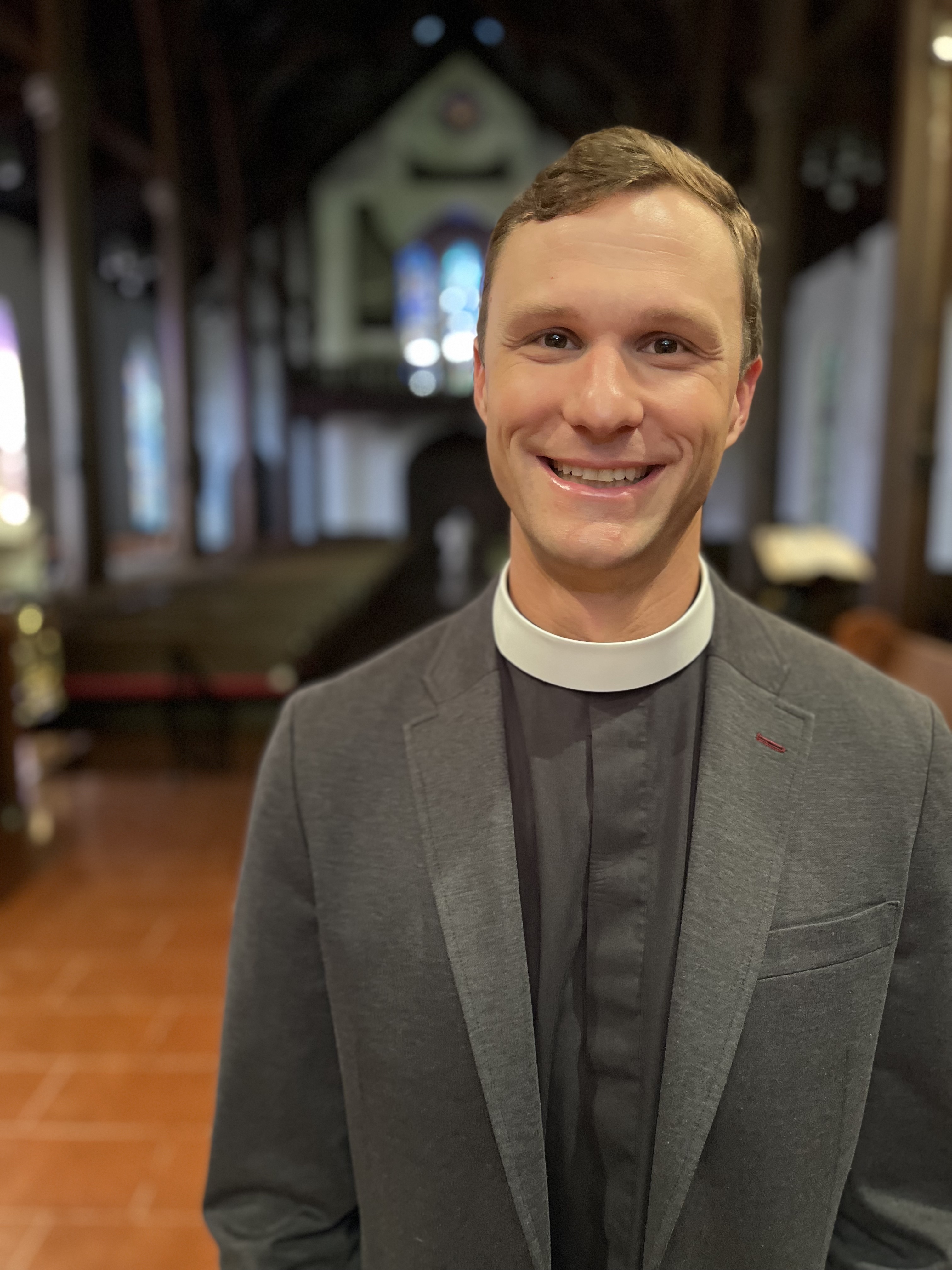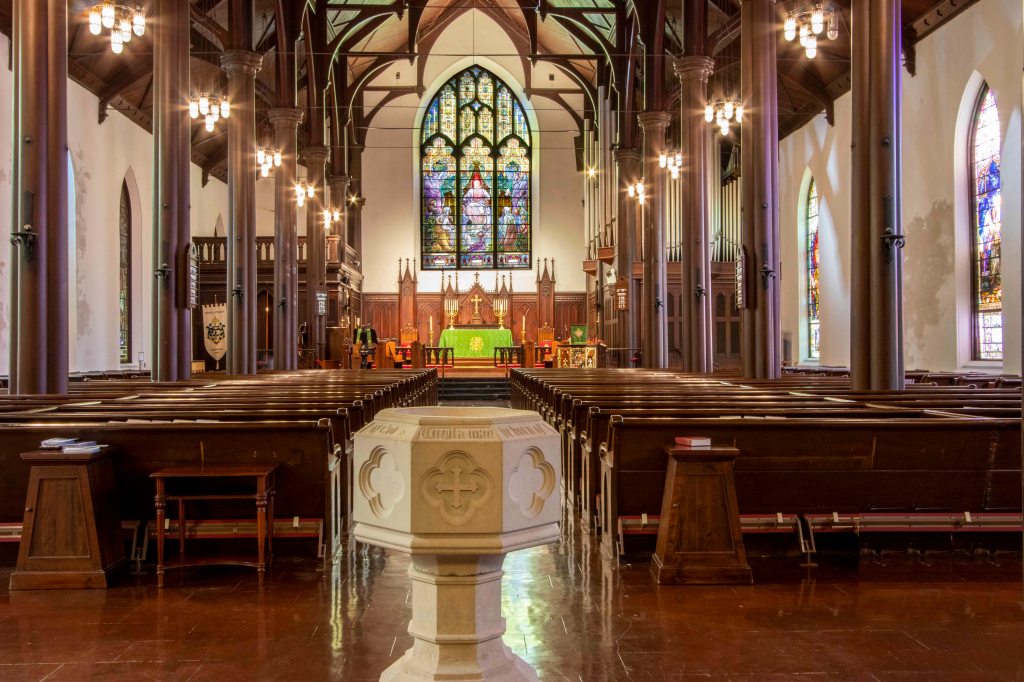Sermon for the Fourth Sunday in Lent
March 20, 2014
John 9
Life was good. I remember it vividly, like it was yesterday. It was November 2006, and I was about to graduate from the University of Texas that December. Life was good. Maggie and I had been dating over a year, and we were starting to make plans for the rest of our lives. Life was good. I was well on my way to seminary, and was just completing the final few requirements in the process. Life was good. And then I went to the doctor’s office for a physical exam before seminary. I thought I was healthy. I ran. I lifted weights. I played football. Life was good. And then it all came crashing down. I was diagnosed with Type I Diabetes during that physical exam. This is an auto-immune disorder that destroys the pancreas’ ability to create insulin, a hormone your body must have to digest food. Without insulin, Type I diabetics wither away, lapse into comas, and die.
Life had been going so well. And then I was left with this great emptiness. I didn’t understand it. Come on, I was a college kid who was eating spinach salads instead of Big Macs. How in the world could this happen to me? I was a college kid who was going to be a priest, and this was the thanks I got back from God? Life is not so good. Perhaps God is not so good.
What was it for you? What was it that blew your world apart? What was it that made you want to curse God and die?
We all carry these weights around, these memories of pain. I see you carrying them. I see those weights when you walk into church. I see you struggle under the burden of the weight of your pain. And I see you plop down that weight next to you in the pew. And it just sits there. And it looks at you. Life is not so good. And you ask yourself, if God is so great, why in the world do I have to carry this weight around with me? If God is so great, why do I struggle with trying to be the perfect parent? If God is so great, why do I struggle with obesity? Why do I struggle with depression?
If God is so great, why was this man born blind? And the easiest conclusion to jump to is sin. Sin. You know, evil stuff we do. That’s all the disciples can come up with. Maybe the blind man sinned, maybe he did something evil that caused him be born blind. Or, maybe it was his parents that did something evil, and this was God’s way of getting back at them.
It’s the same with us. That weight that drags us down – that awful family thing we have going on, that disease we’re carrying, that memory that we lug around in a suitcase. We don’t know what to make of it, so we blame ourselves. We blame some sin we’ve committed, or we make up some sin we’ve committed to explain it away.
Once I found out I was a diabetic, this is exactly where my mind went. And where it still goes. What did I do? What did I eat? What thing did I do or not do that gave me this disease? My mother asked the same questions of herself: what did I do or not do when I was pregnant that this thing has happened? Or as the disciples put it, “Rabbi, who sinned, this man or his parents, that he was born blind?”
I know you have asked yourself these questions in your darkest nights, when you cannot sleep. That weight, that burden, it sits on your chest at three in the morning and mocks you. That weight makes you question yourself, it makes you question God; that weight makes you worry to death. Then when you wake up in the morning, you pick up that burden just as naturally as you put on your pants. You remember that miscarriage, that fight with your parents, that disease, that sadness, and it leaves you with a great emptiness. Life is not so good.
And what does Jesus say? “Neither this man nor his parents sinned.” I can almost hear exhaustion in his voice, like he is tired of hearing these faithless questions. Jesus says, “it happened so that God’s works could be seen in him.” He wasn’t born blind because he was a sinner, or because his parents were sinners, or because he needed to be punished. He was born blind. And because he was born blind, God uses this an opportunity for glory.
 Jesus makes clay. Puts it in the man’s eyes, and tells him to go wash in the Pool of Siloam. And it was the sabbath. Do not brush aside those details as trivial. They are seminal. Clay and spit – just as God created Adam out of the dust of the earth, so God will remake this man out of the dust of the earth. The Pool of Siloam, which literally means “apostleship.” Wash in the pool of apostles, and drench yourself in the good news. And the sabbath – the sabbath was the day on which God completed creation. For the blind man, it was on that sabbath that he is completed, and made whole.
Jesus makes clay. Puts it in the man’s eyes, and tells him to go wash in the Pool of Siloam. And it was the sabbath. Do not brush aside those details as trivial. They are seminal. Clay and spit – just as God created Adam out of the dust of the earth, so God will remake this man out of the dust of the earth. The Pool of Siloam, which literally means “apostleship.” Wash in the pool of apostles, and drench yourself in the good news. And the sabbath – the sabbath was the day on which God completed creation. For the blind man, it was on that sabbath that he is completed, and made whole.
The man washes the clay out of his eyes in the pool of apostleship on the sabbath. And he holds true to the words of Jesus. He gives glory to God. The man born blind says, “one thing I know. I was blind. And now I see.” The weight that was dragging him down was released, it was drowned in the pool of apostleship. And now that weight is gone, the man can be what he was always meant to be. A complete human.
Because that’s what guilt and shame do to us. They prevent us from being fully human. When we fret over our diseases, our frailties, our messed up families, what really happens is that we aren’t living as complete humans. We are living as shadows of what God created. Those memories, those weights are like shackles on our souls, and with them we can never be truly free to live for God. For me, it’s the shame of being a diabetic. It stops me from being fully alive because I am always fretting about the past, and lugging this weight around. I know you do it too. It’s sitting next to you right now.
I cannot stand here and give you some sort of miracle for your suffering. I have no magic pill or snake oil that will cure you of whatever ails you. Because for me, I will still be a diabetic. You will still live with the memory of that nasty breakup. The specter of bankruptcy will always affect your credit score. Think of the man born blind, his neighbors still identify him as the blind man who used to beg, even though now he can see. Some things will never change. While I cannot heal you of your frailties, what I can offer you is the story of the man healed by Jesus.
After that man has defended himself and proclaimed the good news that Jesus healed him, the man is driven out from the court. And notice what happens next. Jesus finds the man. Jesus finds the man. If there is any good news in all the world it is this: Jesus is looking for us. I often hear television evangelists and door-to-door Christians ask that question: “Have you found Jesus?” I want to reply, “I didn’t know he was lost.”
All laughing aside, I must offer this reminder – it’s not all about you. And it’s not what you can do, or be, to earn God’s grace. There is no way you can be good enough, or smart enough, or rich enough, or healthy enough to ever “find Jesus.” In fact, the opposite is true. Jesus comes searching for us when we are broke, and strung out, and exhausted, and depressed, and blind, and dying.
That is the good news of Jesus Christ. And that is where my words end. And I must conclude with the words of the man in our story. Born blind, healed on the sabbath, and found by Jesus, he is given grace to see the light. In the midst of his agonizing past and his bright future, he faces Jesus and says what we are afraid to say, “Yes, Lord. I believe.”





Leave a comment